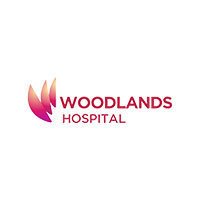When the hair follicles get clogged with oil and dead, acne is a symptom. This leads to pimples, blackheads, and whiteheads. It is most commonly associated with adolescence but can occur at any age. Treatment options include over-the-counter medications, prescription medications, and lifestyle changes. In severe cases, professional medical care may be necessary. Acne can significantly impact a person's emotional well-being and self-esteem.
| Causes | Polycystic Ovary Syndrome (PCOS), Cushing's Syndrome, Thyroid Disorders |
|---|---|
| Remedies | Tea tree oil, Aloe vera, Diet modifications |
| Preventive Options | Keep skin clean and hydrated, Avoid touching the face, Practice sun protection |
| Treatment Options | Benzoyl peroxide, Retinoids, Laser therapy |
| Specialist | Dermatologist |
Acne is a common skin condition in which hair follicles that clogged with oil and dead skin. It can manifest as whiteheads, blackheads, pimples, or cysts and is most commonly found on the face, neck, chest, and back. Acne is typically caused by hormonal changes during puberty but can also be triggered by stress, certain medications, or underlying medical conditions. There are many treatment options depend on the severity of the acne and may include topical or oral medications, lifestyle changes, or procedures to remove the affected tissue. Prevention measures include practicing good skincare habits, such as washing the face regularly and avoiding harsh chemicals or scrubs. While acne can be a source of distress, it is important to know that effective treatment options are available and that it often improves with time.

Acne is a skin condition that can present with various symptoms, some of which include the following.
There are several types of acne, including
Small, raised bumps that are white or flesh-colored.
Small, raised bumps that are black or dark in color due to the presence of melanin.
Small, raised bumps that are pink or red in color.
Similar to papules, but with a white or yellow center that is filled with pus.
Large, painful bumps that are located deep within the skin.
Similar to nodules, but with a pus-filled center that can be very painful.
Acne is a common skin condition that can affect individuals of all ages. While acne is often associated with hormonal changes during puberty, it can also be a symptom or first sign of various medical conditions. Here are some medical conditions that can cause acne.
PCOS is a hormonal disorder that can cause irregular periods, infertility, and acne. The condition is caused by an imbalance of hormones, which can lead to increased sebum production and acne.
Cushing's Syndrome is a rare disorder caused by high levels of cortisol in the body. High cortisol levels can lead to increased sebum production, which can cause acne.
CAH is a genetic disorder that affects the adrenal glands, leading to an overproduction of androgens. Androgens can cause acne by increasing sebum production.
Thyroid disorders, such as hypothyroidism and hyperthyroidism, can affect hormone levels in the body and lead to acne. Hypothyroidism can cause dry skin, while hyperthyroidism can lead to increased sebum production.
Certain medications, such as corticosteroids and anticonvulsants, can cause acne as a side effect. Acne caused by medications is typically mild and goes away once the medication is discontinued.
Autoimmune disorders, such as lupus and dermatomyositis, can cause acne-like lesions on the skin. These lesions may be accompanied by other symptoms, such as joint pain and fatigue.
Here are some common diagnostic tests and examinations for acne are given in the following.
Acne is a common skin condition that can be treated with various medications. Here are five drugs commonly used to treat acne
Benzoyl peroxide is a topical medication that works by killing bacteria and reducing inflammation. It is available over-the-counter and in prescription-strength formulations.
Retinoids, such as tretinoin and adapalene, are topical medications that work by reducing inflammation and unclogging pores. They are available in prescription-strength formulations.
Antibiotics, such as doxycycline and minocycline, can be used to treat moderate to severe acne. They work by killing bacteria that contribute to acne.
Hormonal therapies, such as birth control pills and spironolactone, can be used to treat acne in women. They work by regulating hormones that can contribute to acne.
Isotretinoin, also known as Accutane, is a powerful oral medication used to treat severe acne that has not responded to other treatments. It works by reducing sebum production and unclogging pores.
Laser therapy is a type of surgery that can be used to treat acne. It involves using a laser to remove the outer layer of skin and reduce inflammation.
Chemical peels are another type of surgery that can be used to treat acne. They involve applying a chemical solution to the skin to remove the outer layer and reduce the appearance of acne.
In severe cases, a dermatologist may perform drainage and extraction to remove large, painful acne cysts.
Tea tree oil is a natural remedy that has been shown to be effective in reducing acne. It has anti-inflammatory and antimicrobial properties that can help to reduce the appearance of acne.
Aloe vera is a natural anti-inflammatory agent that can help to reduce redness and inflammation associated with acne. It can be applied topically to the affected area.
Honey is another natural remedy that has antimicrobial and anti-inflammatory properties. It can be applied topically to the affected area to reduce the appearance of acne.
Certain foods, such as dairy and high-glycemic-index foods, have been linked to the development of acne. Making dietary modifications, such as reducing dairy intake and eating a low-glycemic-index diet, may help to reduce the appearance of acne.
Stress can contribute to the development of acne. Engaging in stress-reducing activities, such as exercise, meditation, or yoga, may help to reduce the appearance of acne.
While there is no guaranteed way to prevent acne, there are several measures that can be taken to reduce the risk of developing it.
One of the most effective ways to prevent acne is to maintain a consistent skincare routine. This includes cleansing the face twice a day with a gentle, non-comedogenic cleanser, which will remove excess oil and dirt without stripping the skin of its natural oils. It is also important to keep the skin hydrated with a non-comedogenic moisturizer.
Touching the face can transfer bacteria, oil, and dirt from the hands to the skin, which can exacerbate acne. It is important to avoid touching the face as much as possible, especially when hands are not clean.
Makeup and skincare products that are comedogenic can clog pores and cause acne. Choosing non-comedogenic products, which are labeled as such, can help to prevent breakouts.
While the sun can initially dry out acne, it can also cause the skin to produce more oil, leading to further breakouts. It is important to use a broad-spectrum sunscreen with an SPF of at least 30 to protect the skin from harmful UV rays.
A healthy lifestyle can help to prevent acne. This includes getting enough sleep, exercising regularly, and eating a balanced diet. A diet rich in fruits, vegetables, and whole grains and low in processed foods and sugar may also help to prevent acne.
Stress can exacerbate acne by causing the body to produce more cortisol, a hormone that can increase oil production. It is important to manage stress levels through practices such as meditation, exercise, and getting enough sleep.
Acne is a common skin condition when hair follicles become clogged with oil and dead skin cells. In most cases, acne can be managed with over-the-counter medications and proper skincare. However, you should see a doctor if you have any warning signs.
A doctor can help determine the underlying cause of your acne and recommend appropriate treatment options, such as prescription-strength topical or oral medications, chemical peels, or laser therapy. Additionally, they may recommend diagnostic tests such as a skin biopsy to help diagnose the underlying cause of the acne. They can also provide guidance on proper skincare and lifestyle changes to prevent future breakouts.
If you have acne and are concerned about your health, it is important to seek immediate medical attention from a qualified acne doctor. A doctor specializing in treating acne, such as a Dermatologist, would be the right health professional to consult.
Here is a list of Top verified doctors for acne. You can book an appointment with one to start your acne treatment today.


Manipal Hospital, Hebbal, Bangalore
Rs. 1,090 Consult Fees

Manipal Hospital, Malleshwaram, Bangalore
Rs. 800 Consult Fees
A hospital can provide various services to help diagnose and treat your acne. If you are experiencing acne In that case, it is important to visit a acne hospital for a proper diagnosis and treatment plan.
Check a list of Top Hospitals for acne treatment.
Multi Speciality Hospital
Established in 1918
🛌345 Beds
.png)
Multi Speciality Hospital
Established in 1940
🛌220 Beds

Multi Speciality Hospital
Established in 1947
🛌230 Beds
Frequently asked questions and answers about acne.
How do I remove acne?
Removing acne can be done through various methods such as using topical creams, maintaining a healthy diet, staying hydrated, and using over-the-counter acne products. It's important to be gentle with your skin and avoid picking or squeezing pimples, as this can cause scarring.
What is the reason of acne?
Acne is primarily caused by clogged pores due to excess oil production, dead skin cells, and bacteria. Hormonal changes, stress, and certain medications can also contribute to the development of acne. It's important to identify the root cause of your acne to properly treat it.
What are the 7 types of acne?
There are 7 types of acne, including whiteheads, blackheads, papules, pustules, nodules, cysts, and acne mechanica. Each type of acne has its own unique characteristics and requires different treatment methods.
Reviews by patients on different.
M.Shoaib
Manipal Hospital
I had an appointment with Dr. mukta sachdev to my skin problems. He is very friendly and immediately treatment as well...
Smriti Lekha Patra
Manipal Hospital
Dr. Mukta sachdv is the best skin doctor. Recently I met her for my skin allergy. He has got vast experience in this field.
Monica Rani
MGM Healthcare
Very nice experience with Dr. Vaaruni Ravishankar. I like the way he check up the problerm with friendly nature.
Credihealth is an online healthcare portal for all your hospital appointments, diagnostic test bookings, ordering medications, or homecare services. If you have any inquiries, our in-house medical experts can help solve them and guide you to the best specialist in the India.